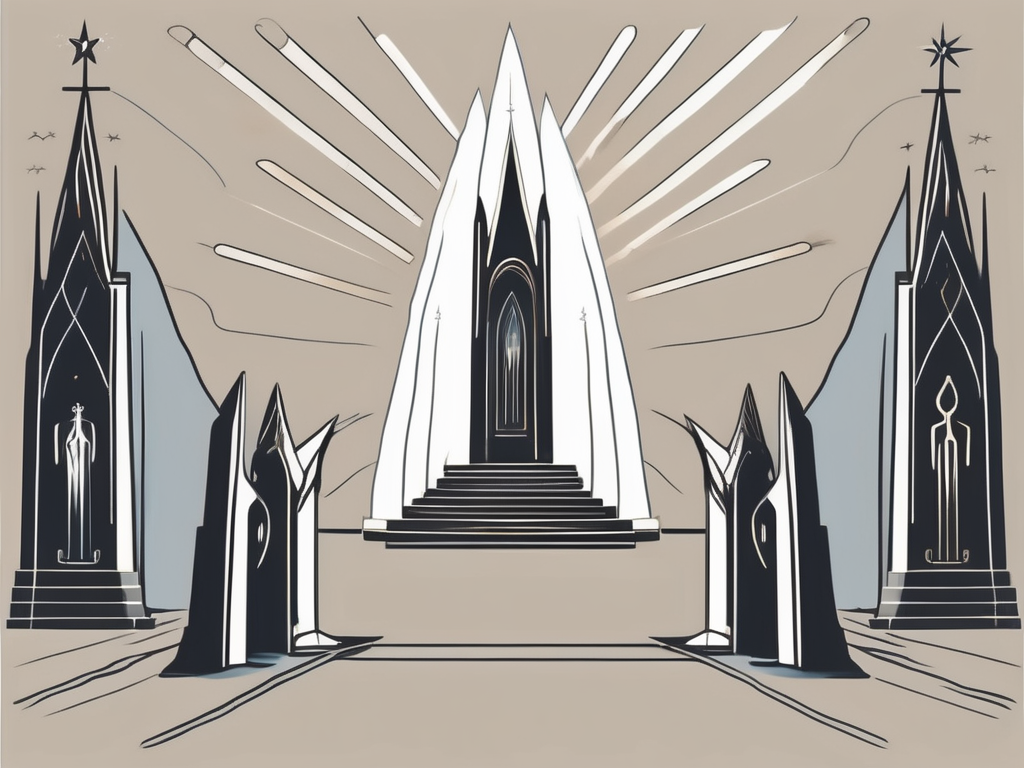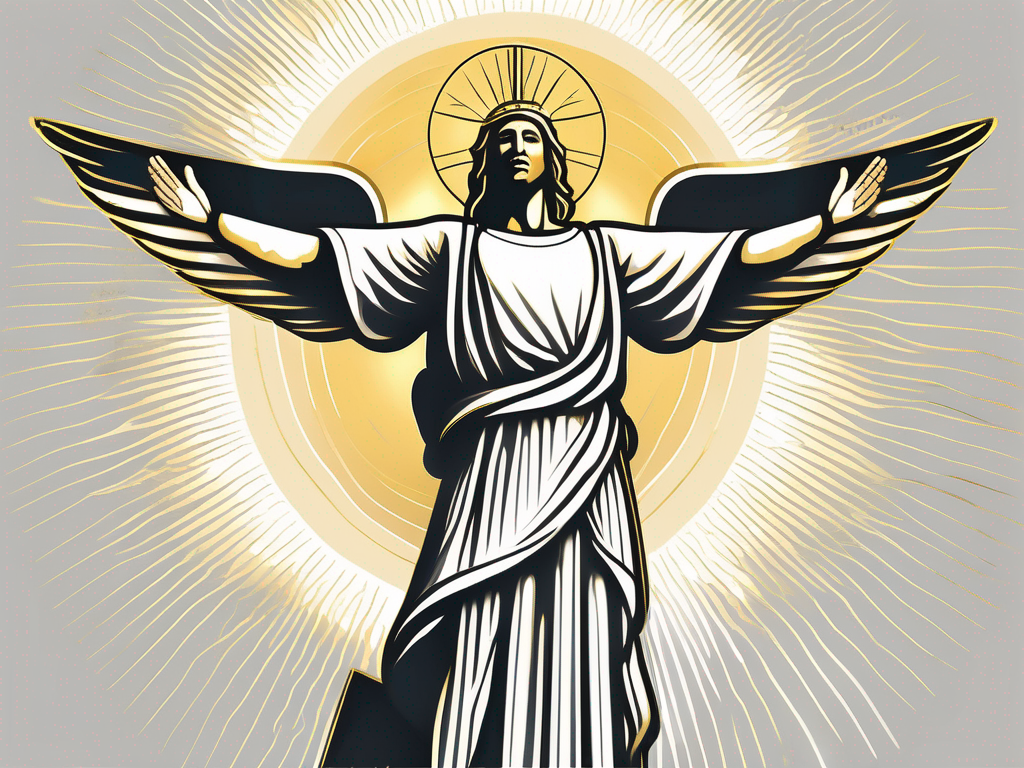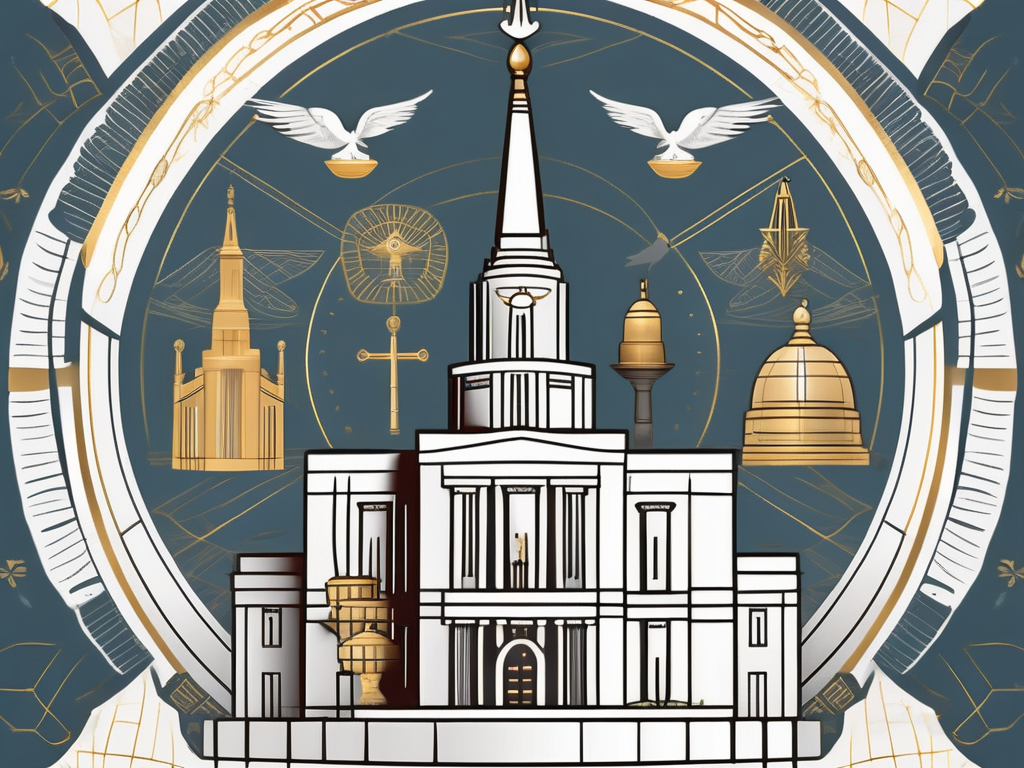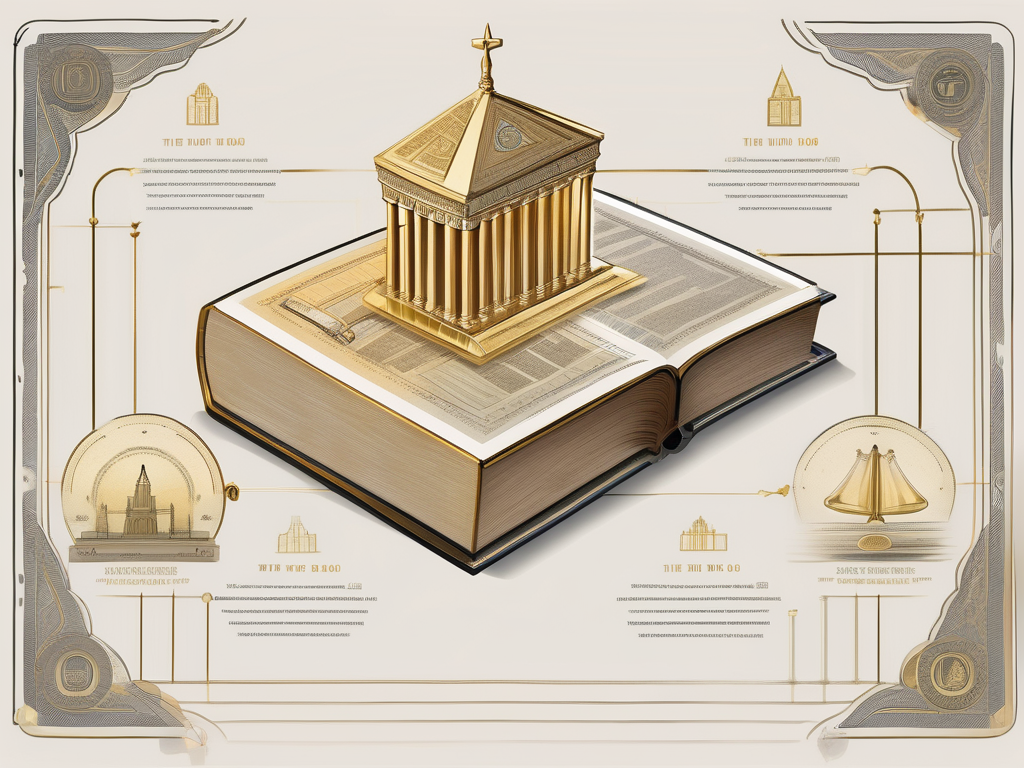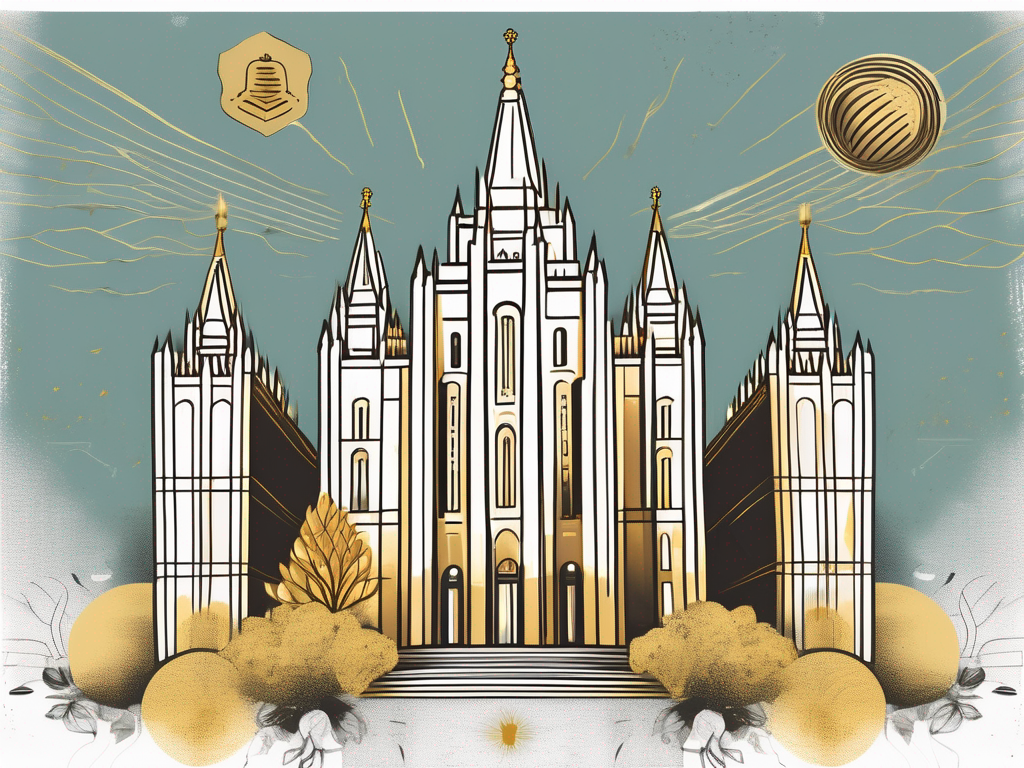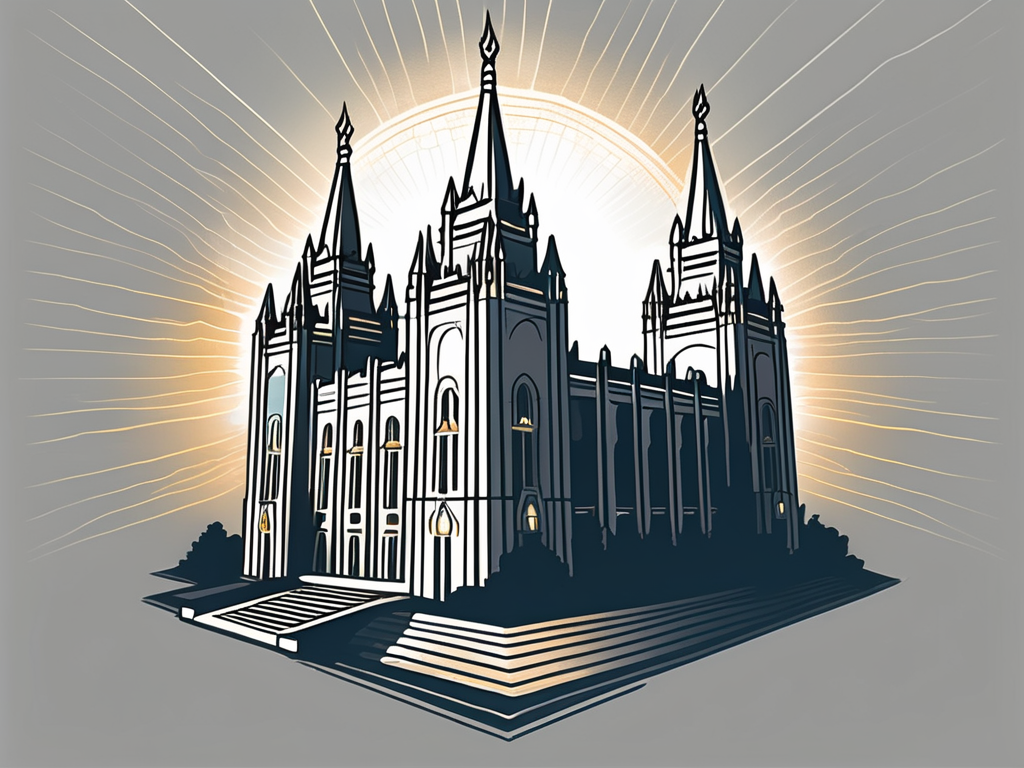In the intricate tapestry of religion, few topics elicit as much intrigue and curiosity as the concept of hell. For Latter-day Saints, commonly known as Mormons, the belief in the afterlife encompasses a unique perspective on this age-old notion. In this exploration of Mormon beliefs on hell, we seek to shed light on the intricacies, controversies, and misconceptions surrounding this aspect of Latter-day Saint doctrine.
Understanding the Concept of Hell in Mormonism
Before diving into the specifics, it is important to address the origins of hell in Latter-day Saint teachings. In the early days of Mormonism, the understanding of hell was influenced by prevailing Christian concepts. However, as the faith evolved, distinct theological differences emerged.
As with any religious belief, the concept of hell in Mormonism is deeply rooted in scripture and divine revelations. Within the framework of Mormon beliefs, the concept of hell can be traced back to scriptural revelations received by Joseph Smith, the faith’s founding prophet. These revelations shed light on the nature of hell as a place of spiritual torment and punishment for those who reject God’s eternal plan.
But what exactly does Mormonism teach about hell? How does their understanding differ from traditional Christian views? Let’s explore these questions further.
The Origins of Hell in Latter-day Saint Teachings
As mentioned earlier, the origins of hell in Mormonism can be traced back to the revelations received by Joseph Smith. These revelations, recorded in the Book of Mormon and other scriptures, provide insights into the nature of hell and its purpose in God’s plan.
In Mormon theology, hell is seen as a necessary part of God’s plan for the salvation and progression of His children. It is a place where individuals who have rejected God’s teachings and chosen to follow a path of wickedness and disobedience will experience spiritual torment and punishment.
However, it is important to note that Mormon teachings emphasize the justice and mercy of God. While hell is a place of punishment, it is also seen as an opportunity for individuals to learn from their mistakes, repent, and eventually progress spiritually.
Theological Differences: Mormon Hell vs. Traditional Christian Hell
One of the key distinctions between Mormon beliefs on hell and traditional Christian views lies in the duration of punishment. While many Christian denominations embrace the concept of eternal torment, Mormons believe that hell is not everlasting.
According to Mormon doctrine, hell is a state of temporary suffering where individuals have the opportunity to repent and progress spiritually. This belief is rooted in the idea that God’s love and mercy extend to all His children, even those who have made grave mistakes.
Mormons believe that through the Atonement of Jesus Christ, all individuals, regardless of their past actions, have the chance to repent and be forgiven. This includes those who have experienced the torments of hell. The purpose of hell, in Mormon theology, is not to inflict eternal punishment, but rather to provide individuals with the opportunity to learn, grow, and ultimately choose to align themselves with God’s teachings.
Furthermore, Mormonism teaches that after the period of suffering in hell, individuals will have the opportunity to progress to different degrees of glory in the afterlife. This belief in varying degrees of heavenly reward is known as the “three degrees of glory” and is a unique aspect of Mormon theology.
In conclusion, the concept of hell in Mormonism is distinct from traditional Christian views. While it is a place of temporary suffering and punishment, it is ultimately seen as a means for individuals to learn, repent, and progress spiritually. Mormon teachings emphasize the love, mercy, and justice of God, offering hope and redemption to all His children.
The Three Degrees of Glory and Outer Darkness
Central to understanding Mormon beliefs on the afterlife is the doctrine of the three degrees of glory. These degrees are often described as “kingdoms” and offer varying degrees of divine reward.
In Mormon theology, the afterlife is not a one-size-fits-all destination. Instead, it is believed that individuals will be assigned to one of three kingdoms based on their faithfulness and obedience during their mortal lives. These kingdoms are known as the Celestial Kingdom, the Terrestrial Kingdom, and the Telestial Kingdom.
Celestial Kingdom: The Highest Degree of Glory
The Celestial Kingdom represents the highest level of glory in Latter-day Saint theology. It is believed to be a place of exaltation and eternal progression in the presence of God and Christ. Those who make it to the Celestial Kingdom attain the greatest blessings and enjoy the fullness of God’s presence.
Within the Celestial Kingdom, there are further distinctions. It is believed that there are three levels within this kingdom, each offering different degrees of glory and exaltation. The highest level is reserved for those who have faithfully followed all of God’s commandments and ordinances, including receiving the ordinances of the temple. These individuals are promised the opportunity to become like God and inherit all that He has.
The second level of the Celestial Kingdom is for those who have lived honorable lives but did not receive all of the necessary ordinances during their mortal existence. Through the work done in temples by faithful members of the Church, these individuals will have the opportunity to receive these ordinances and progress to the highest level of exaltation.
The third and final level of the Celestial Kingdom is for those who lived good lives but did not fully embrace the gospel of Jesus Christ. While they will still enjoy the blessings of the Celestial Kingdom, they will not attain the same level of exaltation as those in the higher levels.
Terrestrial and Telestial Kingdoms: Lesser Degrees of Glory
Beneath the Celestial Kingdom lie the Terrestrial and Telestial Kingdoms. Though lesser in glory compared to the Celestial Kingdom, these realms are still considered a place of happiness and joy. Individuals who find themselves in these kingdoms did not fully embrace the teachings of Jesus Christ during their mortal lives but have the opportunity to progress and receive further light and knowledge in the afterlife.
The Terrestrial Kingdom is described as a place of great beauty and peace. Those who inherit this kingdom are individuals who lived honorable lives but did not accept the fullness of the gospel. They will be visited by Jesus Christ and receive His glory, but they will not have the same exalted status as those in the Celestial Kingdom.
The Telestial Kingdom, on the other hand, is a place for those who lived lives of lesser righteousness. While they will still experience joy and happiness, they will not have the same level of glory as those in the higher kingdoms. The suffering and consequences of their choices will be a part of their eternal experience, but they will have the opportunity to progress and receive the blessings of the gospel.
Outer Darkness: The Mormon Equivalent of Hell
While Mormons do not conceptualize hell in the traditional sense, they do acknowledge the existence of Outer Darkness. This state is reserved for those who outright reject the teachings of Jesus Christ and choose to follow the path of evil and darkness. Individuals consigned to Outer Darkness face a separation from the eternities and the presence of God, experiencing a profound sense of loss and regret.
It is important to note that the concept of Outer Darkness is not something that is easily attained. It is reserved for those who have a perfect knowledge of Jesus Christ and His gospel and then choose to deny Him. This level of knowledge and rejection is rare and not something that the majority of individuals will experience.
In summary, Mormon beliefs on the afterlife encompass the three degrees of glory and Outer Darkness. These degrees offer varying levels of divine reward and are based on an individual’s faithfulness and obedience during their mortal lives. The Celestial Kingdom represents the highest degree of glory, while the Terrestrial and Telestial Kingdoms offer lesser degrees of glory. Outer Darkness is reserved for those who reject the teachings of Jesus Christ.
The Role of Judgment in Determining Afterlife
At the heart of Mormon beliefs on hell and the afterlife lies the concept of judgment. Mormons firmly believe in the principle of personal accountability and the need for each individual to be held responsible for their choices and actions.
When it comes to the afterlife, Mormons believe that judgment plays a crucial role in determining one’s eternal destiny. It is through the process of judgment that individuals are evaluated based on their works, desires, and intentions. This understanding reinforces the conviction that humans possess agency, the ability to choose between right and wrong, and will ultimately be accountable for the consequences of those choices.
The Mormon Belief in Personal Accountability
In the eyes of Mormons, personal accountability is a fundamental principle that shapes their understanding of the afterlife. They believe that each person will be judged according to their own actions and decisions, rather than being held responsible for the sins of others. This belief emphasizes the importance of individual agency and the responsibility to make righteous choices.
Furthermore, Mormons believe that personal accountability extends beyond mere actions. They believe that individuals will also be judged according to their desires and intentions. This means that not only will their deeds be taken into account, but also the motivations behind those deeds. It is believed that a person’s true character and intentions will be revealed through the judgment process.
The Influence of Christ’s Atonement on Judgment
While the concept of judgment may seem daunting, Mormons find comfort in the redemptive power of Christ’s Atonement. They believe that through the infinite sacrifice of Jesus Christ, individuals have the opportunity to repent, change, and find forgiveness. This understanding of the Atonement influences their belief in judgment, as it provides hope for those who may have made mistakes or committed sins in their mortal lives.
Mormons believe that through sincere repentance and a genuine desire to change, individuals can access the healing and transformative power of Christ’s Atonement. This process allows them to be forgiven of their sins and make amends, thus influencing their judgment in the afterlife. It is believed that the Atonement enables individuals to overcome the negative consequences of their past actions and align themselves with God’s eternal plan of happiness.
Furthermore, Mormons believe that the Atonement not only provides the opportunity for forgiveness but also enables personal growth and progression. Through the grace of Christ, individuals can become more like Him and develop the attributes necessary to dwell in God’s presence. This transformative process is seen as an essential part of the judgment experience, as it allows individuals to become the best version of themselves and ultimately inherit eternal life.
In conclusion, the role of judgment in determining the afterlife for Mormons is a significant aspect of their belief system. It emphasizes personal accountability, the need for righteous choices, and the transformative power of Christ’s Atonement. Through the process of judgment, individuals are evaluated based on their works, desires, and intentions, with the opportunity for repentance and growth. This understanding provides Mormons with hope and motivation to live according to God’s commandments, knowing that their choices and actions will ultimately shape their eternal destiny.
The Concept of Eternal Progression
One of the most fascinating aspects of Mormon beliefs is the doctrine of eternal progression. This principle of ongoing growth and learning in the afterlife provides a unique perspective on the purpose and potential of human existence.
The Opportunity for Progress and Learning in the Afterlife
Mormons teach that the afterlife offers limitless opportunities for individuals to continue their spiritual journey, acquire knowledge, and refine their characters. This understanding of eternal progression allows for the eternal pursuit of truth, goodness, and perfection.
The Doctrine of Exaltation and Becoming Like God
At the core of Mormon beliefs on eternal progression lies the doctrine of exaltation—the belief that individuals have the potential to become like God. This concept reflects a profound optimism about the divine nature of humanity and the possibility of inheriting all that God possesses.
Controversies and Misconceptions Surrounding Mormon Beliefs on Hell
Like any religious doctrine, Mormon beliefs on hell have faced their fair share of controversies and misconceptions. It is crucial to address these issues to foster a comprehensive understanding of the subject.
Addressing Common Misunderstandings
One common misconception is the belief that Mormons have a binary view of salvation and damnation, which oversimplifies their nuanced understanding of the afterlife. By addressing this and other misconceptions, we can dispel misunderstandings and encourage dialogue.
The Impact of Cultural Interpretations on Perception of Mormon Hell
Another factor that has influenced the perception of Mormon hell is cultural interpretation. Human interpretation of doctrine can vary, and it is important to distinguish between core teachings and individual or cultural perspectives.
By exploring Mormon beliefs on hell, we gain a deeper understanding of their unique perspective on the afterlife. From their distinct understanding of degrees of glory to the concept of eternal progression, Mormons offer a rich tapestry of ideas that challenge traditional notions of hell. It is through respectful dialogue and a commitment to understanding that we can bridge the gaps between our beliefs and foster a climate of mutual understanding.
